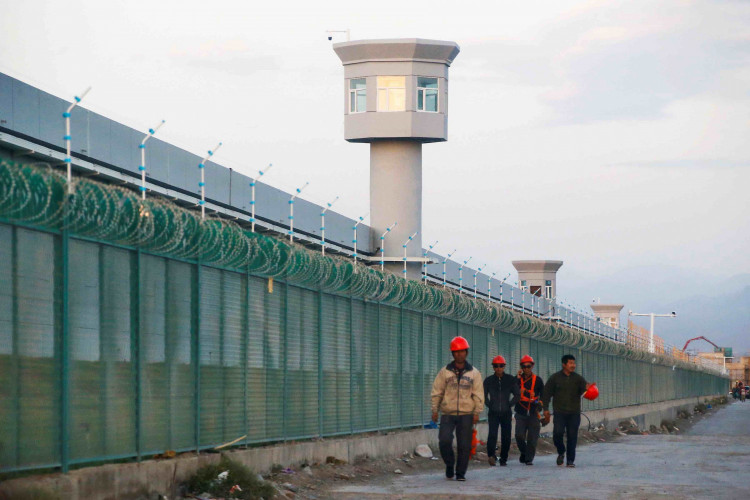Allegations of human rights violations in the Xinjiang Uygur Autonomous Region of China are designed to taint China's reputation, according to a government representative Friday.
The allegations are "just another apparatus of the anti-China campaign under the cover of 'independent-study,'" China government representative Xu Guixiang said at a news conference to refute claims made in an Australian report.
The recent Australian Strategic Policy Institute's Xinjiang Data Project report claims it has identified serious human rights violations in Xinjiang - including the mass detention of minorities and compulsory sterilizations.
It says satellite data located "380 suspected detention facilities" in Xinjiang and the institute said as many as four of every 10 mosques in the region have been demolished.
China has responded that the camps were vocational training and reeducation programs to alleviate poverty and counter terrorism.
Xu rejected the statement of Sayragul Sauytbay in the report. She alleged she was among people forced to work in a detention camp in Xinjiang. Sayragul has since fled to the U.S.
According to Xu, one of Sayragul's colleagues at a local kindergarten said Sayragul worked every day at the school and, therefore, her claims are lies.
Earlier United Nations secretary-general Antonio Guterres said he hoped China would allow access to U.N. experts to investigate detention centers believed to be holding more than 1 million Uyghurs and Turkic Muslims.
Human Rights Watch director Louis Charbonneau said Guterres should "make clear to Beijing that an investigation can take place with or without access."
Advocates have been calling on Guterres to take a firmer stance in response to the allegations.
Meanwhile, Chinese officials have called on countries and politicians to stop criticizing China over the allegations. Chinese ambassador to Australia Cheng Jingye said during a news briefing at his residence in Canberra earlier this week that "if we are provoked, we will respond in kind."
Cheng said the accusations against human rights violations in Xinjiang were "Western lies" and "fabrications" of "anti-China forces."
BBC China correspondent John Sudworth, based in China for nine years, said earlier he was harassed "wherever we film." The British broadcaster confirmed this week that Sudworth had relocated to Taiwan.
China foreign ministry representative Hua Chunying said it was unaware of Sudworth's departure.






